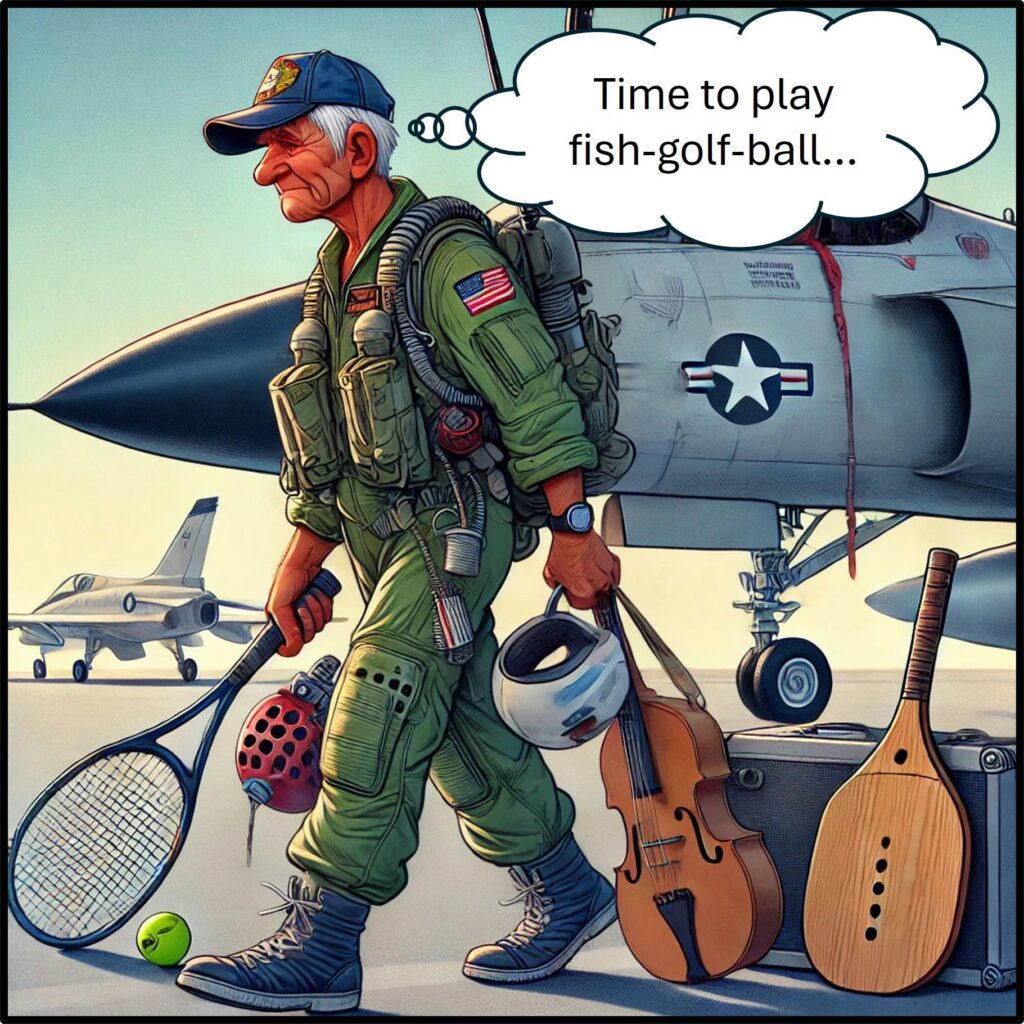Retire to It, Not From It
One of my Tomahawk brethren summarized his reasoning for leaving Active Duty as “I cannot brief ‘Detect, Target, Sort, Kill all Factor Groups” every day for the rest of my working life. He saw that as the default future. We all have a default future.
Retiring from the military often implies a default future in defense consulting or airline aviation. Few of us aspire to those as careers (or as career 2.0). They are just good default futures after our military service ends because they pay a lot and use our skillset. It’s fairly uncommon that we diverge from those default professional futures.
The military gives us precious little time to explore and test-drive alternate professional futures. The norm is that we know what we’re retiring from, but what about what we’re retiring to? The conundrum compounds for senior officers because job demands rarely relent in the final years to create time and headspace to explore alternate futures.
This issue usually happens at least twice. The first time is military retirement, and the second is “real” retirement. The default future after military service may not provide the most professional fulfillment, but it probably checks the box on compensation and a better family OPTEMPO.
The default future for real retirement can have more dire outcomes. For many of us, work provided more than a paycheck. It’s a social outlet, a sense of higher purpose, a time and routine organizing function, and a sense of identity. Those are not cheap byproducts. They are critical to our happiness.
The deleterious effects of an amoeba retirement are not appealing. Depression, cognitive decline, weight gain, degraded relationships, are all common experiences if we just retire from something. We need to retire to something instead.
A steely-eyed killer friend told me he plans to retire only when he has at least four things to retire to. He wanted something that allowed him to serve others—likely church or volunteer activity. He wanted a way to make sure he’d stay fit and so he learned to play pickleball. (I suggested triathlon, but he wasn’t having it.) He wanted a way to stay connected with the types of work-sourced friends he’d had for four-plus decades and planned to organize a poker club. Finally, he liked to fish and planned to buy a small fishing boat.
The thing I think he really got right was to acknowledge the difference between planning to do those things in retirement and practicing them to make sure they’re actually going to fit in retirement. It’s one thing to hope that fishing or golf will equal happy retirement, it’s another to already know that you scratch your itches with a list of activities that you just get to do more of with your newfound time.
Cleared to Rejoin
We don’t have to retire. Many of us will be happy continuing our professional pursuits even when we don’t need the money. But if we’re retiring, the default retirement may be one to skip. Instead, mission plan what you’ll retire to, then start chair-flying it to make sure it’s the right future for you!

